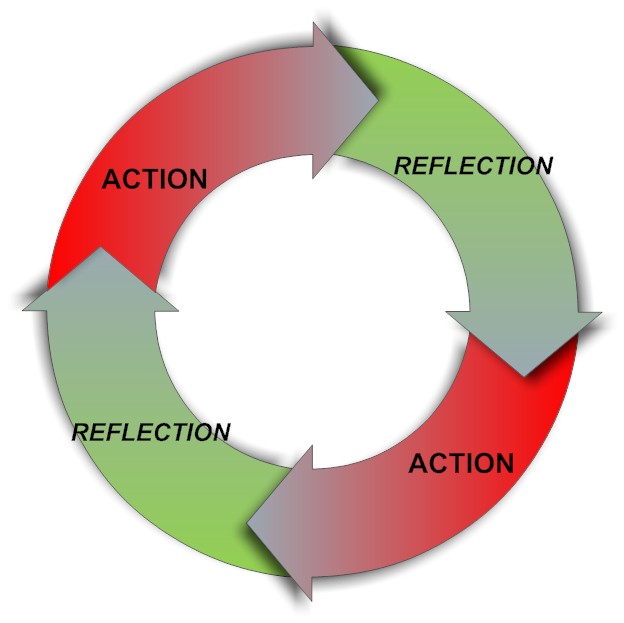Need a New Strategy Process? Eight Questions to Ask
Changes in the business environment demand changes in how we make and execute strategy. Let’s examine just a few of the factors that impact our approach to strategy.
1. Everyone is an expert in something. As early as the 1960s, Peter Drucker identified all work as knowledge work. As the pace of knowledge and information grows exponentially, it is impossible to master but a small sliver of human knowledge in a lifetime. Yet business results depend on the integrated work of multiple experts.
Does your strategy process harness the expertise of multiple experts?
2.
Globalization, outsourcing, and flattening. In the early 1900’s, Henry Ford created a completely vertically integrated automobile manufacturer. He viewed his costs as beginning from when ore is lifted from the earth to the point at which a car reaches the customer. Yet today there are few if any vertically integrated suppliers of anything. Everything can and will be outsourced in a global economy where communication gets cheaper and easier by the day.
Does your strategy process evaluate the evolving opportunities and threats of a globalized, flat, and outsourced world?
3.
Creative destruction. A recent book by McKinsey consultants noted the shrinking lifespan of companies in the S&P 500. Companies are created and destroyed much more quickly. Google is only ten years old as a company and they have disrupted all sorts of businesses.
Does your strategy process assume continuity, or do you consider the possibilities of rapid, discontinuous change?
4.
The Cheap Revolution. As Rich Kaarlgard frequently writes about in Forbes, the cheap revolution is creating rapid disruption and opportunities for new businesses. As computing power, storage, and bandwidth continue to get cheaper, the cheap revolution changes the landscape for many industries.
Does your strategy process consider the impact of the cheap revolution on your industry and on how you operate?
5. The War for Talent. While the current recession may have shifted power back to employers temporarily, the only long term growth capital is human capital.
Does your strategy process explicitly incorporate a human capital dimension up front, or is it left to human resources to figure out later?
6.
Demographic shifts. Baby Boomers represent a huge knowledge base which is both an asset and risk. In one mid-sized company I know well, the chief sales engineer is in his early 60s. He knows every conceivable application of the company's products. He has seen it all. Yet he has new grandchildren, wants to work less, and his health is not guaranteed. The knowledge base of this one individual is a both a huge asset and a huge risk for the company. Millennials bring opportunities and challenges of their own. They offer new opportunities for innovation, but they bring very different expectations about career to the workplace.
Does your strategy process specifically address how to protect and develop intangible knowledge assets – assets who leave the building every night?
7.
Free agent nation. In a knowledge-based economy, the best talent wants to work on its own terms. Yet many companies still cultivate an employee mindset – they seek to fill positions rather than getting work done.
Does your strategy process specifically address how to innovate through internal and external talent?
8.
Moving from the Industrial age to the Information age to the Conceptual /Spiritual age. Authors like Stephen Covey and Daniel Pink have both written about this transition in the world of business. When most people’s basic needs are met, we move up the hierarchy of needs in search of greater meaning. Many studies of compensation reveal that money is not a primary motivator in the workplace, but the lack of it can be a demotivator. All human beings want to be part of a story. Experts want their expertise to be applied in a way that creates meaning.
Does your strategy process engage people in a story?
The common definition of insanity is doing the same thing and expecting different results. Before you convene your next strategy retreat or meeting, take a moment and consider what you really want to achieve. Will your traditional strategy process get you there?

